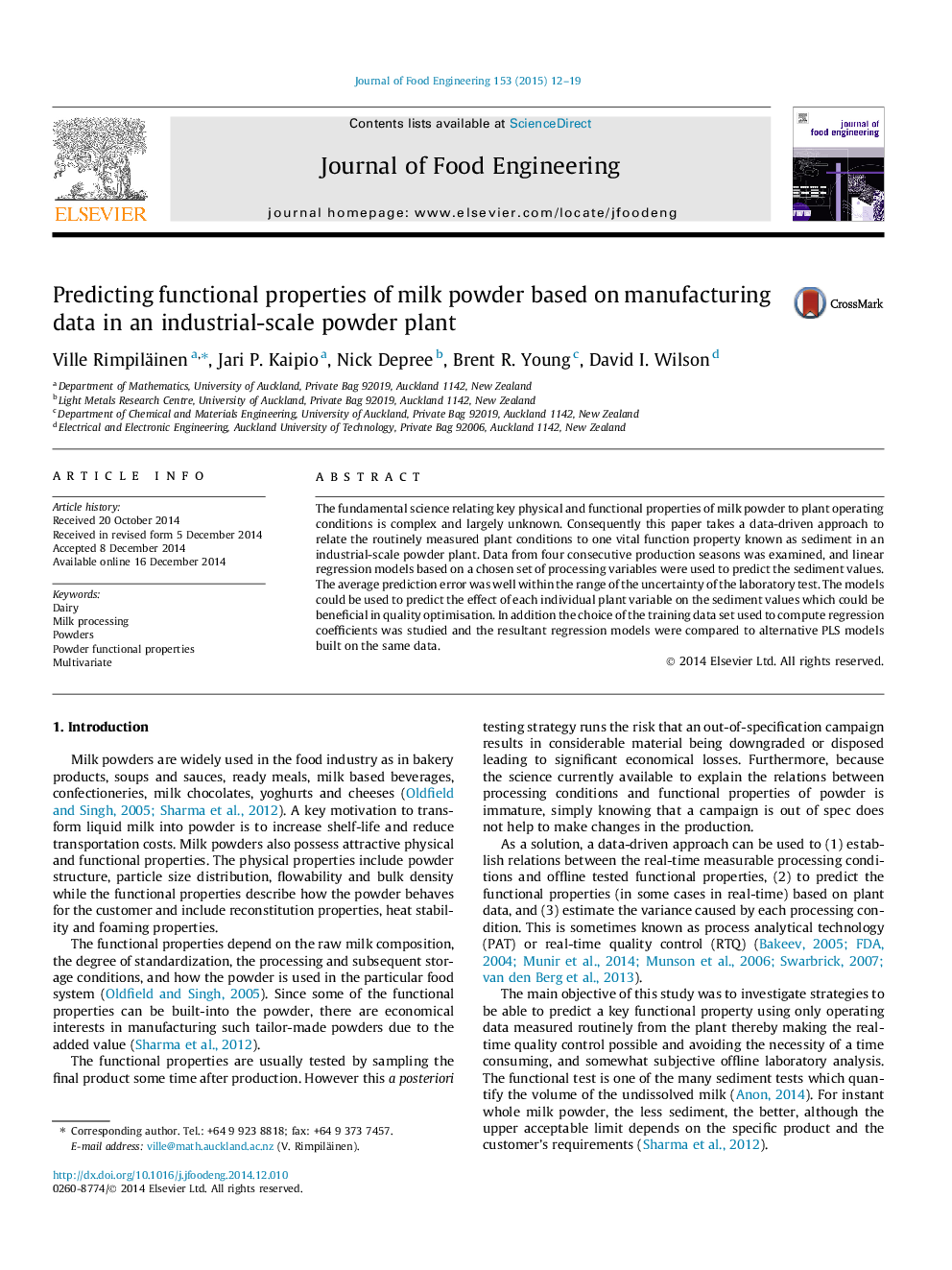| Article ID | Journal | Published Year | Pages | File Type |
|---|---|---|---|---|
| 222879 | Journal of Food Engineering | 2015 | 8 Pages |
•Milk sediment values were predicted using conditional probability distributions.•Average prediction errors were within the range of the uncertainty of the lab test.•Variations in sediments caused by each plant variable could be estimated.•Prediction accuracy of the proposed approach was found equal to PLS.•The approach enables real-time quality control of powder functional properties.
The fundamental science relating key physical and functional properties of milk powder to plant operating conditions is complex and largely unknown. Consequently this paper takes a data-driven approach to relate the routinely measured plant conditions to one vital function property known as sediment in an industrial-scale powder plant. Data from four consecutive production seasons was examined, and linear regression models based on a chosen set of processing variables were used to predict the sediment values. The average prediction error was well within the range of the uncertainty of the laboratory test. The models could be used to predict the effect of each individual plant variable on the sediment values which could be beneficial in quality optimisation. In addition the choice of the training data set used to compute regression coefficients was studied and the resultant regression models were compared to alternative PLS models built on the same data.
